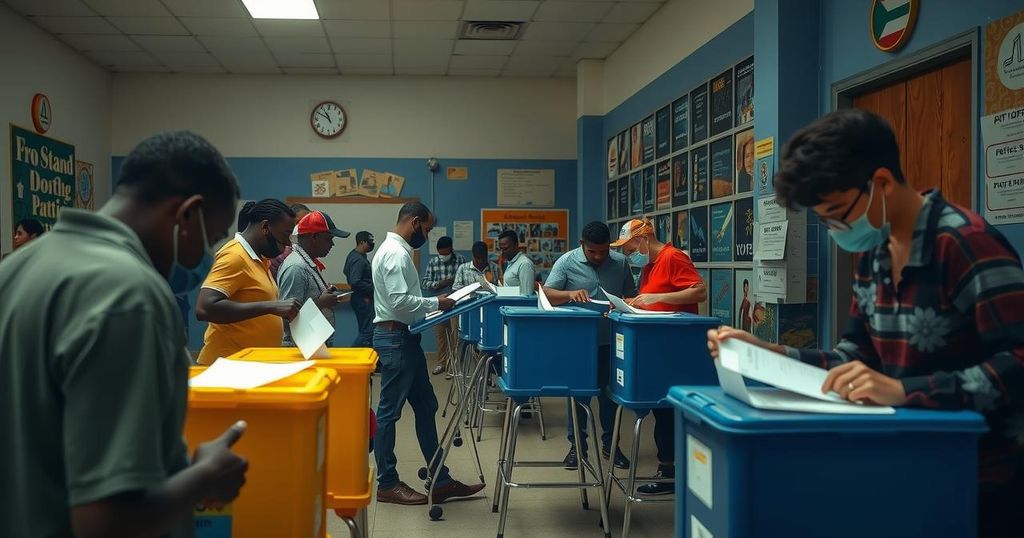Mauritius is currently voting in parliamentary elections amid a severe cost of living crisis, with over a million registered voters participating. The election, marked by a wire-tapping scandal, has led to tense campaigning. Prime Minister Pravind Kumar Jugnauth’s party and the opposition are focused on economic promises to alleviate citizens’ concerns.
Mauritius is currently conducting its parliamentary election, with over one million registered voters set to elect 62 members to the National Assembly amidst pressing economic concerns. The election, occurring in the shadow of a significant wire-tapping scandal, is pivotal as voters grapple with a looming cost of living crisis. Polls opened early in the day and are scheduled to close in the evening, with results anticipated on the following day. Political campaigning has been characterized by heightened tension, particularly following the leak of sensitive phone recordings involving various political figures and media personnel. The incumbent Prime Minister, Pravind Kumar Jugnauth, leads the Militant Socialist Movement party, which promises measures to combat economic challenges, a crucial issue for the electorate in this prosperous yet economically strained nation. With the backdrop of Mauritius’ recent diplomatic victory in securing sovereignty over the Chagos Islands from the United Kingdom, the Prime Minister’s party is attempting to leverage economic stability and growth as central campaign themes. Despite projections of 6.5 percent economic growth for the year, citizens express concerns regarding material benefits, prompting promises from both the ruling coalition and opposition to enhance minimum wages, pensions, and reduce taxes on essential goods.
Mauritius stands out as a stable democracy in Africa, aiming to be a strategic link between the continents of Africa and Asia. The country’s economy, valued for its offshore financial activities, tourism, and textiles, has recently experienced a period of growth. Nevertheless, the populace faces challenges tied to living costs that often overshadow these economic advances. The current parliamentary election marks the twelfth since the nation’s independence in 1968, highlighting both the importance and the challenges within its electoral politics. Key issues surround the cost of living, illustrated by legislative proposals aimed at increasing wages and subsidizing costs for citizens. Additionally, the political landscape is navigating the implications of a scandal that questions the integrity of the government, underscoring the dynamic nature of electoral politics in Mauritius.
In summary, the parliamentary elections in Mauritius are overshadowed by a significant economic crisis impacting the standard of living for many citizens. With an air of urgency and security concerns, the casting of votes is pivotal in determining who will lead the nation forward amid pressing economic issues. Both the ruling and opposition parties pledge substantial economic reforms to address the cost of living crisis, but public trust remains shaken due to recent scandals. The resolution of these elections will undoubtedly shape Mauritius’ democratic future and its economic trajectory.
Original Source: www.aljazeera.com






